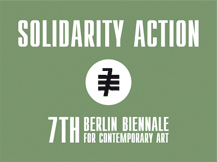It gets increasingly difficult to answer such questions because the years go by but things remain more or less the same, and I don’t think they have changed just because Rome has more museums, more galleries, more independent spaces today, or because of the ability to make networks, which at these latitudes is partly a vocation, partly a necessity. For years, and over the years, our country has been lacking in cultural policies for contemporary art. But the real problem is that there is no wider, attentive, aware audience. The community is not just the passive target of the work, it can become a client and, even more so, a guarantor of culture. If a museum closes it should not be just the sector specialists who get indignant, but the citizenry at large, which is being deprived of assets that belong to them by right. When the mechanisms of appointment of directors, commissioners, curators are not clear, the community could demand an accounting. Those who pay in funds in the form of taxes and expect them to return in the form of cultural offerings should demand that public finances be distributed in keeping with principles of transparency and excellence. The basic problem of the artistic community lies in the fact that it is small and closed, as well as in the difficulties of representation in civil society. We take turns being interlocutors and audience, and we run the risk of becoming the mirror of those political institutions whose practices we so harshly criticize. In the 1970s Pierre Bourdieu stated, with the facts to back it up, that the institutions constructed at the start of the 1800s to favor social inclusion were actually devices of exclusion, and as such were used only by those classes that, by position and birth, constituted the commissioning and using entities of those institutions. The production of contemporary culture has suffered even more from this exclusiveness, because if art gives image to what we live, a society that has problems representing itself or interpreting its own images shows signs of poor health. In Frieze a few months ago, talking about the occupation of Teatro Valle, the critic Mike Watson asserted that this experience constituted “a political engagement which has the potential to reach out beyond the cultural field and question the political bases upon which social – not just cultural – policy is made”. Some months later, Teatro Valle can be looked at as an example. This theater in the center of Rome, occupied after a long period of being closed, and whose programming has established a dialogue, for months, with all fields of knowledge (The Predicament of Culture), has put the spotlight back on a very beautiful and often forgotten concept: that of the Common Wealth. Starting with this term, the collective of Teatro Valle is trying to become a foundation with the widest possible base. It takes large ranks to work on culture, and this is an exercise in democracy.
CECILIA CANZIANI
Co-curator of Nomas Foundation, Rome. Co-founder of 1:1 projects.


